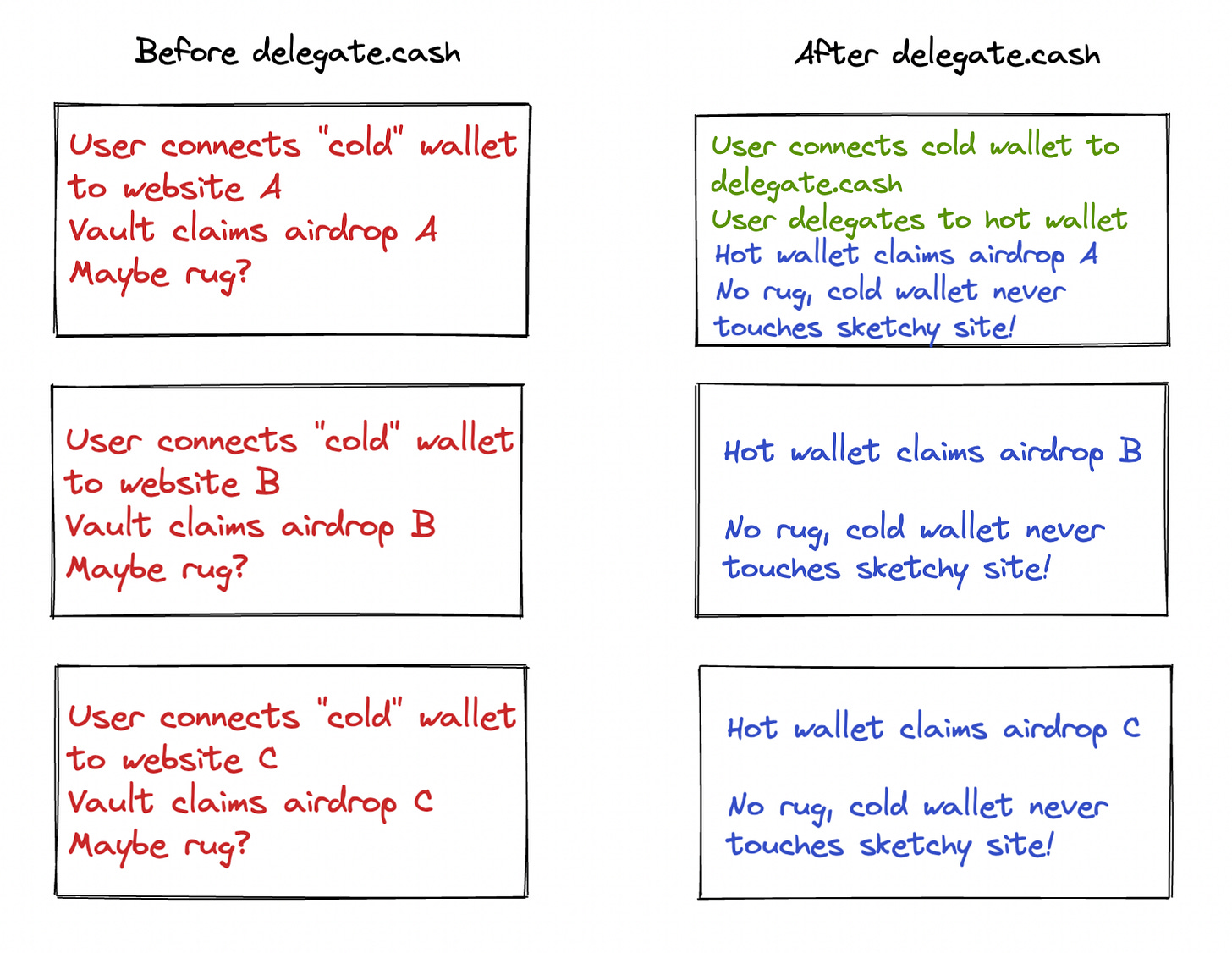Wallet Delegation

“I been hacked. All my apes gone” has entered into the meme hall of fame after spreading like wildfire across all of Twitter. For those of us that are learning to navigate the space, we have quickly realized that crypto infrastructure is minimal and UX, abysmal. Many of us feel lost and somewhat helpless when executing any kind of transaction.
We have covered some of the basics of wallets and transactions in this column but this rabbit hole just gets deeper and deeper. If you really want a deep dive into the topic, we recommend reading through this punk6529 mega-thread to go through the whole spectrum of hot software wallets -> hot hardware wallets -> cold hardware wallets -> multisigs. This is good advice if you own an XCOPY or a Fidenza that’s unlikely to require interaction. But what happens when you stick your VeeFriend into your cold hardware wallet and then Gary says, “f*ck it, free claim Friday”? How do you claim your token? How do you get a ticket into the Bored Ape private event? How do you prove wallet ownership to access that token gated Discord channel? Each of these require using your so-called cold wallet to interact, turning it back into a hot wallet.

We were really excited to discover delegate.cash, a fully immutable onchain registry contract that lets users specify hotwallet “delegates” to act on behalf of coldwallet “vaults”. It’s live today on Ethereum, Polygon & Goerli, with other chains available on request.

You’ll use delegate.cash to assign a hot wallet delegate for your cold wallet vault. The delegate has permission to claim airdrops or other utility on behalf of the vault, but it cannot touch anything within the vault! They’ve even built a granular permissions system, so you can either assign a delegate for either (1) everything; (2) a specific contract; (3) a specific token. I expect most users will be interested in delegating everything, but you could also delegate one hot wallet to handle your bored apes claims and another wallet to handle your VeeFriends claims for further separation of powers.
delegate.cash is the best solution to secure valuable onchain assets while still participating in NFT airdrop claims, token governance, and more. Users link cold wallets with hot wallets, and then the hot wallet can act on behalf of the cold wallet, like crypto power-of-attorney. It can be incorporated into login flows, token-gated minting, claiming, gaming actions, DAO governance, and more.
Not all token gated projects are set up to use this protocol but the list is growing fast. This seems like a promising evolution for user security and wallet management.
